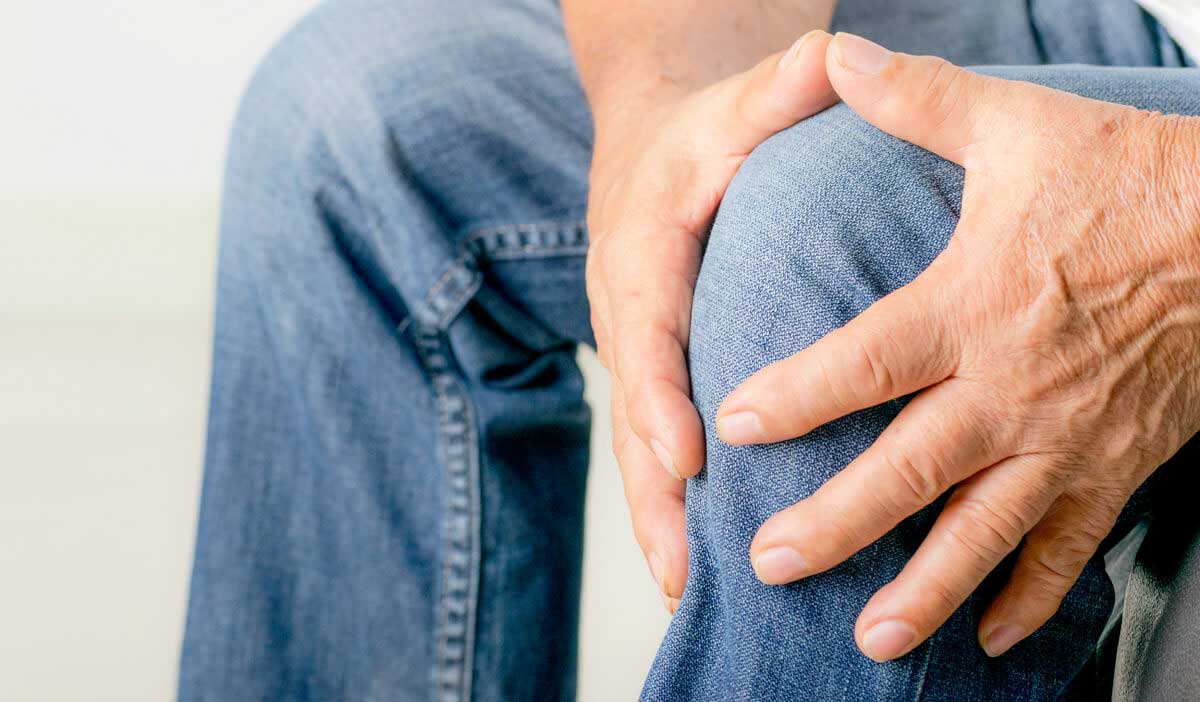This article is part of the Essential Guide to Hip Pain Relief.
A common misconception about hip pain is that surgery is your only treatment option, but that’s simply not the case.
Almost all providers will not perform surgery unless all other alternative treatment methods have proven to be ineffective in alleviating your hip pain.

Common causes of hip pain
The hip is essential to the fluid, everyday movement of your body.
The ball-and-socket joint in your hip is cushioned with cartilage to prevent friction between your bones. While this cartilage is durable, it’s not immune to the wear-and-tear from everyday activities.
- Age. Just like the rest of your body, your hip joint can become damaged and worn down as you age. Years and years of the same movements and activities can cause damage and deterioration to your cartilage.
- Arthritis. Arthritis is one of the most common causes of pain in the hips, knees, and joints. The combination of inflammation from arthritis and the breakdown of cartilage can cause pain and stiffness in the hip joint.
- Fractures. Slips and falls are the leading cause of hip fractures in older adults, and these kinds of accidents are especially common during the winter season.
- Strains. Stress from overuse can be why your hip is in pain. Strained muscles, caused by strenuous activities, can also cause hip pain.
Learn how to know when it’s time for a hip replacement
Is your pain actually hip pain?
Hip pain sometimes radiates from other areas of the body, and this makes it hard for some patients to self-detect the true source of all their pain.
Common symptoms of hip pains and hip injuries may also include feelings of discomfort in other parts of your body, including:
- Buttocks
- Groin
- Inside of the hip joint itself
- Outside of the hip joint
- Thigh
Hip pain can also be the result of an injury elsewhere on the body.
If you’re experiencing hip related pain, talk with your provider to determine the cause of your discomfort or injury.
Treatment options for your hip pain
While surgery certainly is an option, it’s not your only option…or even your first one. Common treatment options prior to discussing surgery include:
- Anti-inflammatory. This can include over-the-counter and prescription options. If inflammation is the leading cause of your hip pain, an anti-inflammatory will be your best treatment option.
- Injections. Injections are used to target a precise area where the pain is stemming from. An injection is often a good answer whether it works or not. If the numbing medication provides you with instant relief, your provider will know that the source of your pain is in the hip joint itself. If the injection does not provide you with relief, your provider will know that your hip joint may not be the issue and other alternative testing and treatment options will be needed.
- Physical therapy. Physical therapy can help you overcome your hip pain through stretching, strengthening, and range of motion. Your physical therapist will design a treatment plan customized to you based on your level of pain, stiffness, and low range of motion. Together, you will work through your pain and ultimately get your hip back to normal.
- Lifestyle modifications. Making small changes in your daily routine can have a powerful impact on your hip pain.
- Being overweight can apply more pressure to your hip joints, making the wear-and-tear all the more damaging. Exercise and mindful eating can help you lose weight and lessen the pressure applied to your irritated hip.
- The way you walk can also affect your hip pain. Those who have an unusual or altered gait when they walk can experience hip pain from the imbalanced pressure applied to one hip over the other. Working with a physical therapist, and then on your own, can help you to be more mindful of the way you walk and how it impacts your hip.
- Modify your exercise routine. If you are an active individual that experiences hip pain, try changing your workouts to be lower impact. The reduced stress on your joints can make all the difference in your level of pain.
Surgical treatment options
Arthroscopy
A hip arthroscopic surgery requires small incision points and can treat hip pain and issues while avoiding large incisions that require extensive recovery time.
Hip replacement
If your hip joint is too severely damaged or worn down, and all other alternative treatments were ineffective, your provider will let you know it’s time to consider a hip replacement.
While a total replacement is more invasive and requires more rehabilitation and recovery than an arthroscopic surgery, sometimes it’s just what you need to find pain relief.
Meet our orthopedic doctors
Considering a hip replacement
If you are experiencing pain in your hip from arthritis, injury, or trauma, it may be time for you to look into your recovery options. It’s important that you never delay your care in fear that surgery is your only option. At Logansport Memorial Hospital, our team of orthopedic surgeons work with you to explore all treatment avenues before recommending any surgery at all — especially a total joint replacement.
If you would like to explore your treatment options, or talk to our surgeons about having a hip replacement, call our orthopedics office at (574) 722-2663 and visit our website for additional orthopedic resources.
You might also like:
- Tips for healing surgical scars
- What’s causing your achy joints?
- Treatment options for rheumatoid arthritis





